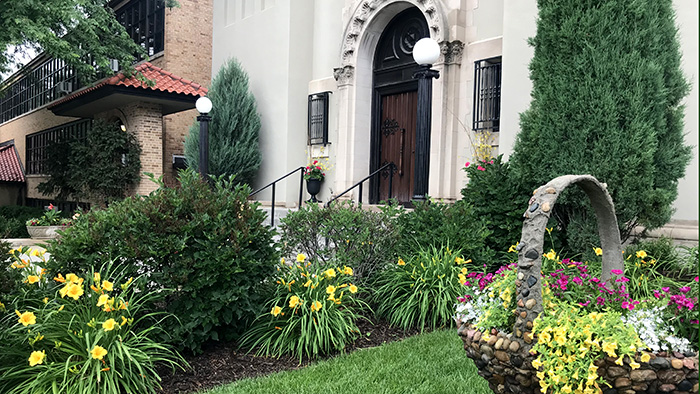Dear Friends,
We are planning to have a parish celebration to “ritualize” the ending of the separation caused by the pandemic. It is a very Catholic thing to do. I am aware that the pandemic is not over and there are still possibilities of variants popping up to haunt us, but for the most part we have returned to our former ways of being parish. The need to ritualize this “ending” is deep in our Catholic soul. Mark your calendars for Saturday evening August 14th from 6:00 to 10:00 pm.
I love what Josef Pieper, a German Catholic philosopher, says about celebration and ritual. In addition to forming nobility in our souls, celebration and ritual also awakens us to the nobility inherent in life. “To hold a celebration means to affirm the basic meaningfulness of the universe and a sense of oneness with it, of inclusion within it.” Furthermore, because “we cannot conceive a more intense affirmation of the world than ‘praise of God,’” the meaning communicated to us in our celebrations is the meaningfulness of being a worshipper, an adoring creature in God’s good order.
As Pieper argues throughout his book, Leisure the Basis of Culture, we need times of Sabbath, of celebration, of ceremony, to call us back to what we are. In celebrating a ritual, we step out of the world of our own making and choose a world of partaking and receiving God’s grace. We step out of a world where we are the source and arbiter of worth, into a world where our worth is given and affirmed by our Maker. We step out of the isolation of individual action, into a community of action shared throughout ages. We step out of our own small anxieties, into memory’s long gaze at the layers of time remembered and time to come. We step out of the pressure of the day’s strife and fragmentation, into the harmony of an intricate dance. And it is from this refreshed awareness of what life is and who we are, Pieper says, that we become able to pursue our twofold calling: to worship God and to create culture.
As a High-Church Anglican, C.S. Lewis, knew the same truth about ceremony. In his Preface to Paradise Lost, he explains how our ceremonial rituals (of which he cites Christmas dinner and church liturgy as examples) form their celebrants. Rituals, he says, are patterns which are “set deliberately apart from daily usage, but [are] wholly familiar within [their] own sphere”; and they are “imposed on the mere flux of our feelings by reason and will” in order to render “pleasures less fugitive and griefs more endurable” and to entrust to “wise custom . . . the task (to which the individual and his moods are so inadequate) of being festive or sober, gay or reverent, when we choose to be, and not at the bidding of chance.”
Lewis’s words describe the transformation of our souls. First of all, with the right ordering of the soul. By participating in ceremony, we put reason and will over “the flux of our feelings.” But ceremony does not merely put our souls in good form; it also, gradually, fills that form with right feeling. Ceremonies—be they formal rituals or family traditions—give us familiar, shared, recognizable patterns by which to enact the emotions proper to the time, and that faithful enacting births genuine feeling, finally making “pleasures less fugitive and griefs more endurable.”
To celebrate makes us more human, more spiritual, and more able to face the challenges that will come our way. Please plan on joining us on August 14th for a few hours of food, music, storytelling and time with fellow parishioners. In doing so, may our lives be made richer and better. To help us with planning for food and drink, please let us know if you are planning on coming. We want to have enough for everybody.
Peace,
Fr. Damian



